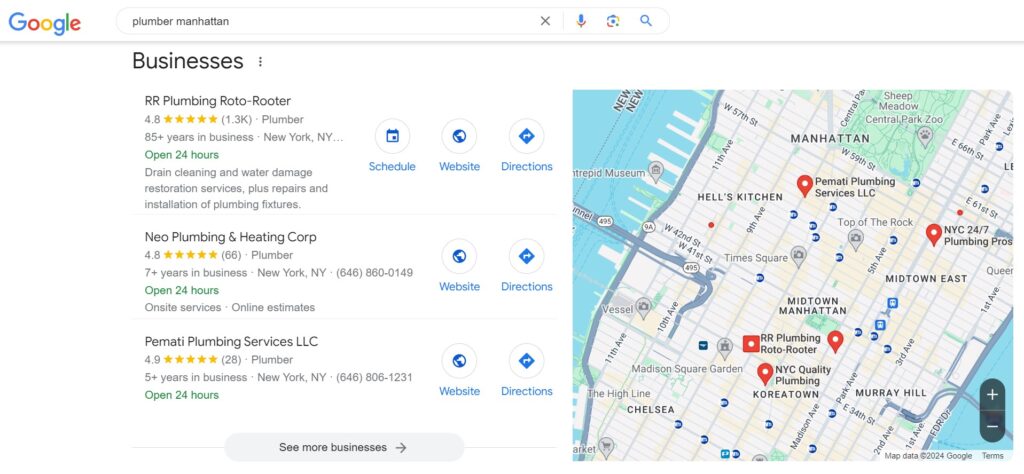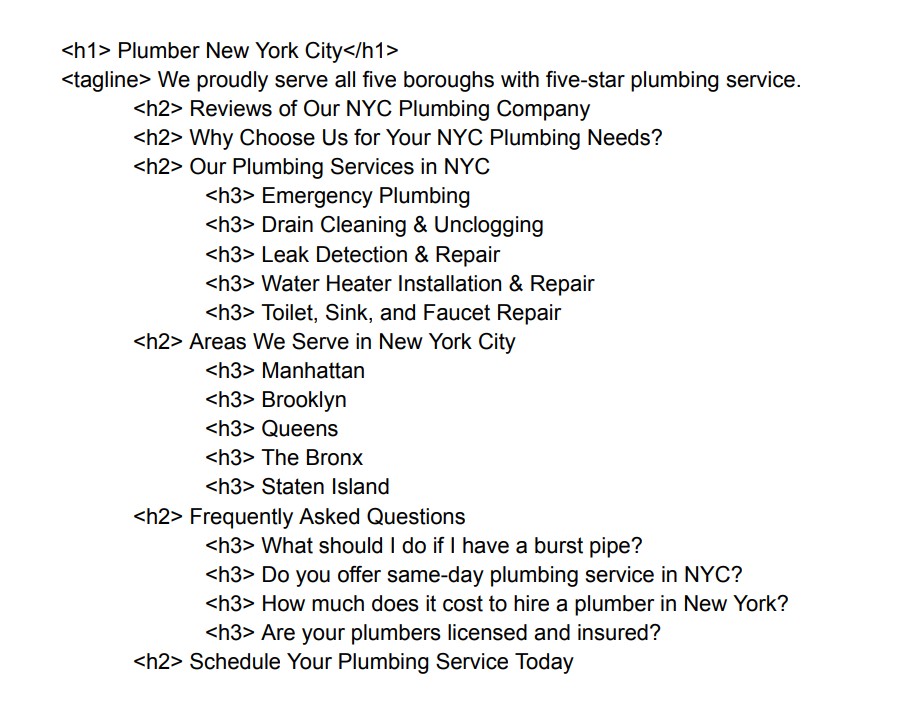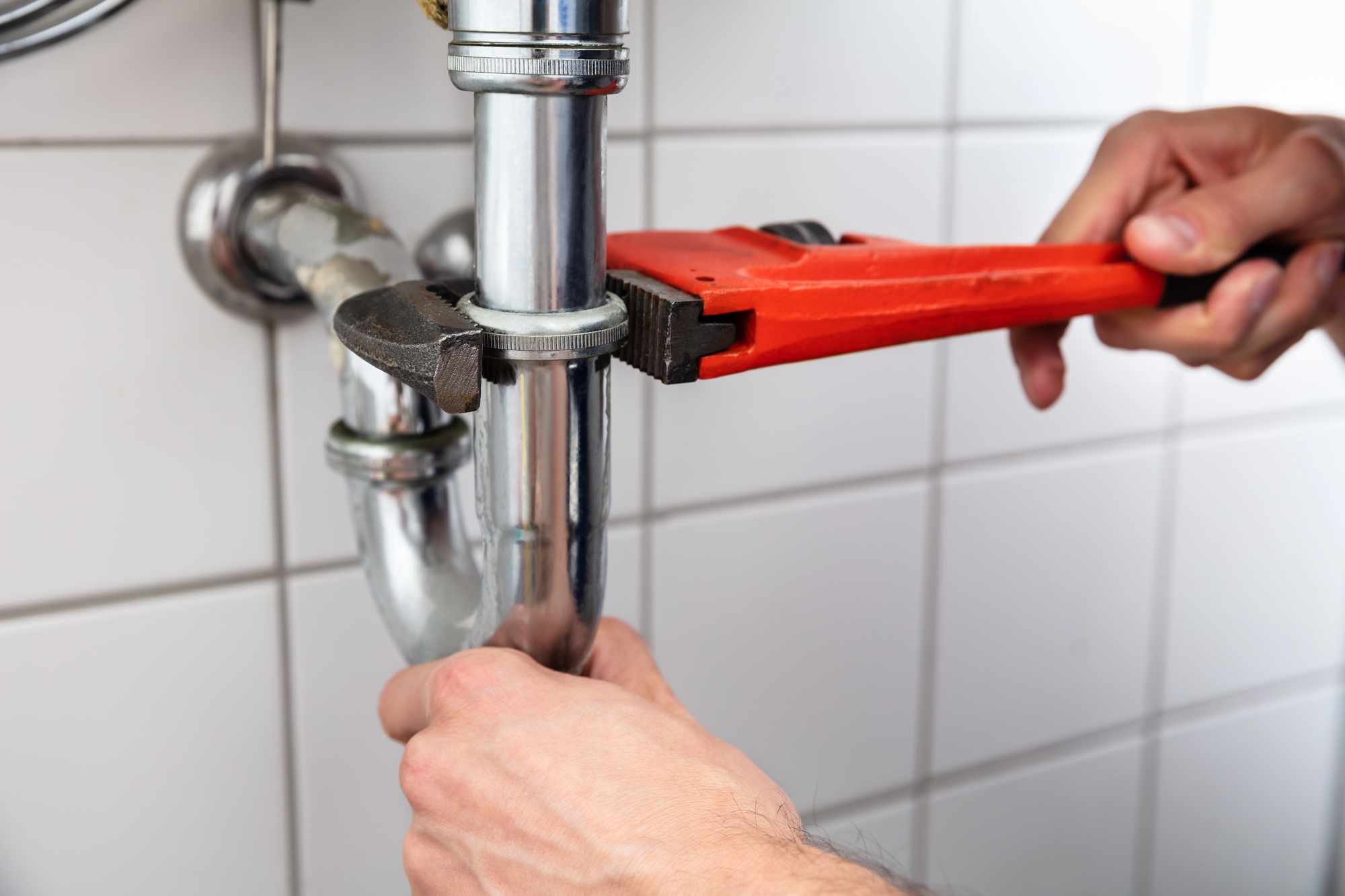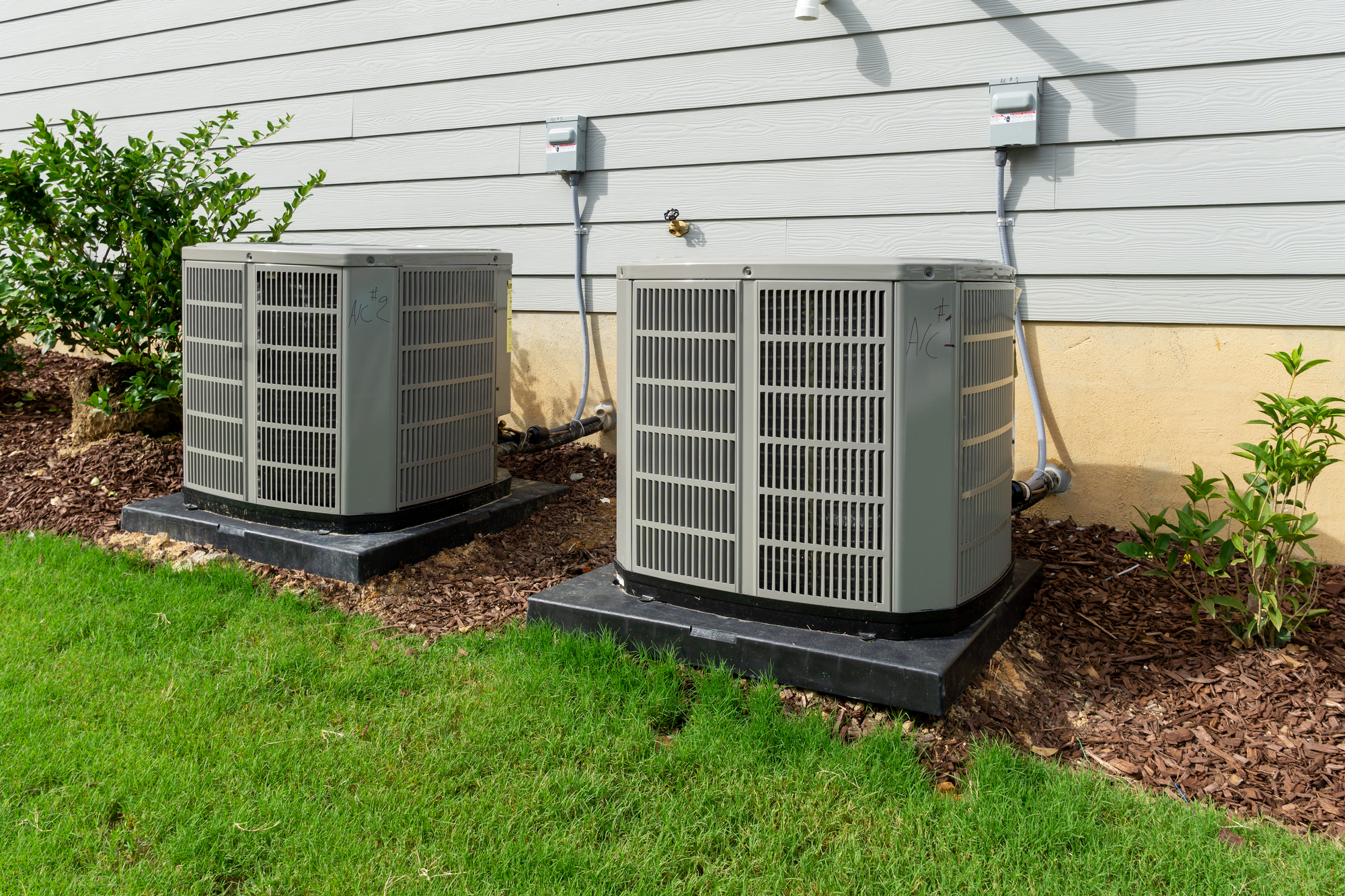Every minute, homeowners search for “emergency plumber near me”—but with 130,348 plumbing businesses in the U.S., they could find you at the top of search results or a competitor.
If your plumbing business isn’t optimized for local search, you’re likely missing out on a great opportunity to attract inbound leads.
This local SEO guide for plumbers will show you how to:
- Attract leads by ranking high in Google Maps with your Google Business Profile
- Target high-intent keywords like “plumber [Your City]”
- Outrank the competition with your website
Understanding Local SEO for Plumbers
Local SEO is about optimizing your plumbing company to appear in local searches like “plumbers near me” or “emergency plumbing services in [City Name].” There are a couple of ways you can show up in the search results for terms like this. One is your Google Business Profile, which displays prominently in searches for local services. The other is your website, which you’ll see further down the page of search results.
The goal of local SEO is to show up at the right time when someone needs your services.
Optimizing Your Google Business Profile for Maximum Visibility

Your Google Business Profile (formerly Google My Business, or GMB) is one of the most important tools for generating leads from local SEO. Google Business Profiles are often the first thing potential customers see when they search for plumbing services in their area. Having an optimized GBP allows you to appear high in search rankings, making it easier for potential customers to find and contact you.
To optimize your Google Business Profile, start by ensuring all of your business details are accurate and complete. This includes your:
- Business name
- Address
- Phone number
- Website link
- Hours of operation
- Your services
- Photos and videos
It’s important to select the right primary category and secondary categories for your business. For many plumbers, their main category is going to be “Plumber”, then secondary categories such as “Emergency Plumbing Services”, “Drain Cleaning”, and “Water Heater Installation”, depending on what you offer.
A complete and accurate profile helps your business appear in Google Maps searches, which allows you to attract relevant leads.
A significant ranking factor in the visibility of your Google Business Profile is your reviews. You should attract as many genuine reviews from your customers as possible by asking them and making it easy for them to leave you a review. Make use of your review link and QR code, which removes friction in this process.
You should avoid shady tactics that can be effective in the short term but get you in hot water with Google eventually. This includes things like keyword stuffing your business name (use the actual real name of your business) or posting fake reviews.
You need to stay on top of your Google Business Profile. You need to monitor it for changes, as things can get changed by Google, suggestions by users, or even competitors. Regularly updating your profile with fresh content, such as announcements and sales, makes your profile more engaging and builds trust with prospective customers.
Reviews and Reputation Management: Building Trust and Credibility
Reviews are important for attracting new business. Customer reviews provide social proof, helping people decide whether or not to trust your company. When people see that past customers had a good experience with your business, they’re more likely to become customers.
Having a steady stream of positive reviews for your Google Business Profile not only improves your reputation, it also improves your SEO performance because it’s a ranking factor.
Encouraging satisfied customers to leave reviews should be an ongoing practice for your plumbing company.
On the flip side, managing negative reviews is equally important. Responding promptly and professionally to all reviews, whether they are positive or negative, shows that you value customer feedback and are committed to delivering quality service.
Keyword Research: The Foundation of Plumber SEO
Local keyword research is a foundational part of local SEO. For plumbers, it’s important to target the right search terms that local customers are using. The idea is to identify the words and phrases that prospective customers type into the search bar when they’re looking for plumbing services in the areas you serve.
To do keyword research, you need to have a keyword research tool. Ahrefs and SEMRush are widely used among SEO professionals, but they are expensive. One thing you can do to cut down on costs if you’re doing your own SEO is to buy a month and do your keyword research within that time period. You can export your list of keywords in a spreadsheet to refer to later. There are also more affordable tools like Keysearch or Keyword Chef that often provide similar keyword data but without other SEO features.
These tools can help you discover relevant keywords for your plumbing business. These might include common terms like “emergency plumber,” “pipe repair,” or “plumbing contractor in [City].” For the most part, the highest volume plumbing keyword is just going to be a simple “plumber + city”.
Of course, there are going to be more specific, long-tail keywords such as “affordable drain cleaning services in [City]”. For these long-tail terms, you can create dedicated pages to target them, but it’s often better to target them as a secondary keyword on pages targeting “plumber + city”.
Avoid the temptation to keyword stuff, which means overloading your content with too many keywords in an unnatural way. This is not an effective strategy anymore, and it can have the opposite effect you want because Google’s algorithm doesn’t favor it, plus, if users read it, they’re likely to leave quickly, which leads to negative user signals for your website. Instead, focus on writing copy that naturally incorporates your target keywords while offering value to your audience. It should go without saying, but you should provide value to your site visitors and speak to them like human beings.
Site Structure: Organizing Your Plumbing Website for SEO Success
The way you structure your website plays a big role in both user experience and search engine optimization. For a local plumbing company, this means making it easy for customers to navigate your site, find the services they need, and contact you quickly. The architecture of your website directly impacts your search engine visibility, as search engines use site structure to understand and rank your content.
Each major service you offer, whether it be toilet repair, pipe repair, or drain cleaning, should have its own dedicated service page with specific and optimized content. Additionally, it’s a good idea to include location pages that highlight the neighborhoods or cities you serve. These are how you rank for geographic-specific searches, like “emergency plumber in [City].”
With practically everyone doing online searches from their mobile devices now, ensuring your website is mobile-friendly is vital for improving both user experience and search rankings. Your website should be properly formatted for smaller screens, have fast loading times, and have easy navigation.
On-Page SEO for Plumbing Websites
On-page SEO refers to the elements you can directly control on your website to influence your search engine rankings. This includes your meta titles (the headline that shows up in Google’s blue links), meta descriptions (the descriptive subheading under the meta title), content, and schema to ensure search engines understand what your pages are about.
Use clear, concise titles for each page that include the target keyword for the page. These titles not only inform search engines but also help users understand the content of the page. A good format for meta titles is “keyword | value proposition”, so for a real page that would look something like this: “Plumber in Kansas City | Guaranteed Plumbing Satisfaction”. You can also use value props that highlight your years or experience or that you have a large number of positive reviews.
Meta descriptions should be compelling, include the target keyword of the page, and entice people to click through to your website.
Your content should be structured using hierarchical heading tags (H1, H2, H3) to organize information clearly for both search engines and users. Your target keyword should be in the h1 tag — the headline on the page.
Here’s an outline you can use and modify for your landing pages:

You should include your target keywords and variations naturally throughout your content, focusing on creating helpful content that addresses common plumbing issues and provides solutions. Search engines will also be looking at your page to see if it has terms that are found on pages ranking for the target keyword. This is called entity optimization. Tools like SurferSEO can help you find these entities so you can include them on your pages.
Building Citations and Backlinks for Your Local Plumber Website
Off-page SEO refers to anything you can do outside of your website to improve your rankings. It usually refers to building citations and backlinks. Google and other search engines treat links from other websites like a vote of confidence and move your website up in the rankings the more quality links you attract.
Citations refer to mentions of your plumbing business on other websites, such as social media and online directories like Yelp, Yellow Pages, and HomeAdvisor. I recommend using something like BrightLocal to build citations to your website. It’s pretty affordable and saves you time rather than building them yourself manually. A small number of citations is enough to get the ball rolling; citations don’t hold a ton of weight in the local algorithm anymore but they do help Google recognize your business as an entity.
Link building is the process of earning backlinks from other websites, and is a strong ranking factor that can greatly enhance your search rankings. A lot of agencies though, are stuck in the habit of buying spammy backlinks from link exchanges, which used to have an effect but is mostly a waste of money at this point. The better route is to get backlinks from local websites that are in the same area as your business, as the local algorithm more heavily weighs links from these sites. Think your local newspaper, magazines, or media websites and look for ways to get featured.
Local SEO for Plumbers Requires Consistent Efforts
To succeed online today, you need a well-rounded plumbing SEO strategy and consistent efforts. By optimizing your Google Business Profile and your website, you can significantly boost your online presence and capture more local plumbing leads at a much lower cost than paying for ads.
Mastering local SEO is ongoing, and as search engine algorithms evolve, it’s important to regularly monitor and update your strategy. Investing in a solid SEO foundation is one of the most effective ways to attract more potential customers and grow your business sustainably.
As you can see, there are a lot of moving pieces and strategies to be aware of when it comes to ranking your local plumbing business in search engines. If you’re interested in working with an experienced agency who has the local SEO case studies to show for it, contact us here about our local SEO services for plumbers.
We also serve other industries with our local SEO services.


